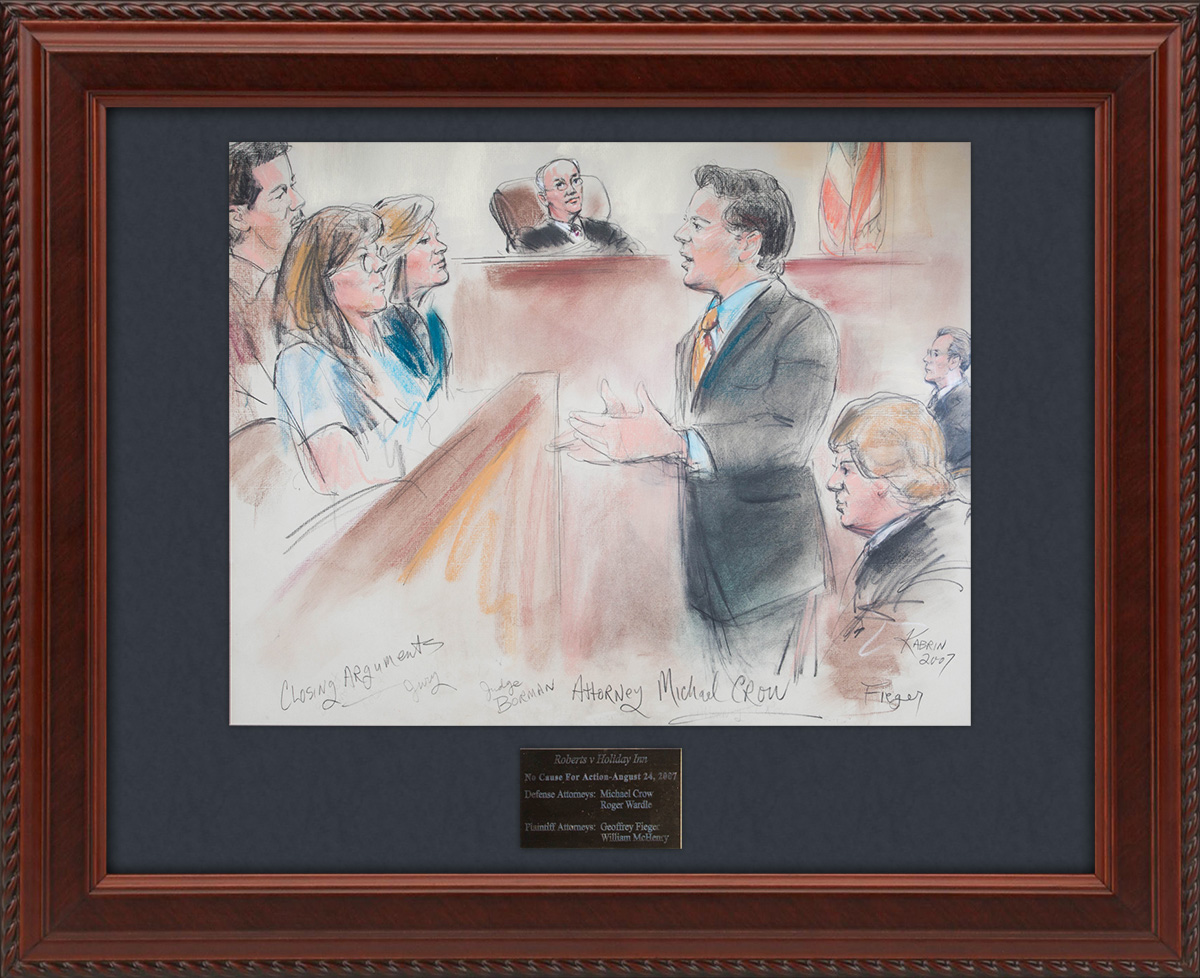A Litigation Philosophy
At Crow Law Firm, our clients determine the desired approach to litigation based on their own individual philosophies. Some want to settle quickly, limiting risk and litigation costs. Some want to pursue dismissal through motion practice or develop facts to secure a more favorable settlement. Some take a hardline approach, where victory by jury verdict is the only suitable outcome. Most consider a hybrid approach based on circumstances. Regardless of philosophy, success is determined by one’s ability to convince the other side, or, ultimately, a jury, that the opponent’s case has no merit and they will lose. This requires an ability to secure and shape evidence to support case theories and dispositive motions, effective communication and negotiating skills, a reputation for effective trial advocacy and a track record of trial success. Michael Crow has honed these skills for almost 25 years. In every case, and regardless of philosophy, these skills are leveraged to secure successful results for Crow Law Firm clients.
Click/tap any case name to view its details.

